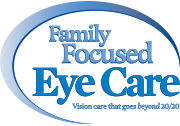Vision Correction
Family Focused Eye Care works in conjunction with other eye care professionals when it comes to surgical procedures. Although Dr. Hulet does not perform surgeries himself, he does provide quality pre-operative and post-operative care. The most common procedures that we see patients for include;
- Laser vision correction
- Oculoplastics
- Cataracts
- Clear lens exchange
- Lens implants
- Cataract Surgery
Laser-Assisted In Situ Keratomileusis (LASIK)
This surgery is approved by the FDA for the correction of myopia, hyperopia and astigmatism. LASIK is a combination of two refractive technologies: Use of a microkeratome, to create a thin flap of tissue (approximately 130 to 180 microns thick) followed by excimer laser ablation to reshape the stromal tissue beneath the flap.
Cataract Surgery
A cataract is a cloudy or opaque area in the normally clear lens of the eye. Depending upon its size and location, it can interfere with normal vision. Most cataracts develop in persons over age 55, but they occasionally occur in infants and young children. Usually cataracts develop in both eyes, but one eye may have somewhat worse vision than the other. There is no way to prevent the development of cataracts and currently the only way to treat them is to surgically remove the natural lens in the eye.
Cataract surgery is a procedure used to remove the natural lens in the eye when it becomes clouded, and replace it with an artificial lens in order to restore clear vision. Cataract surgery is needed when the cataract impairs vision to the extent that it interferes with normal daily activities. Cataract extraction is one of the most frequently performed surgical procedures in the world.
Early symptoms of cataracts include blurred vision, glare, and difficulty reading. Cataracts generally progress very slowly, and surgery may not be needed for many years, if at all. In some cases, periodic changes in your eyeglass or contact lens prescription may be all that is needed to continue to provide you with good vision.
Waiting to have surgery usually won’t harm your eyes. The decision to proceed with surgery is primarily based on the amount of difficulty you have performing your usual daily activities.
ICL (Implantable Collamer Lense)
The Visian ICl is an Implantable Collamer Lense that works with the eye to correct vision. Unlike traditional contact lenses that go on the surface of the eye, the Vision ICL is positioned into the eye between the iris and the natural lens where it stays indefinitely. If your vision changes dramatically, however, it can be removed from the eye.
Photorefractive Keratectomy (PRK)
A procedure involving the removal of the epithelium by gentle scraping away of the corneal epithelium and use of a computer-controlled excimer laser to reshape the stroma.
If you are in need of an eye surgery, you can trust Dr. Hulet to take care of you before and after your surgery. He will make sure you are prepared for what will happen and that you heal comfortably.
Information sited from www.aoa.org
